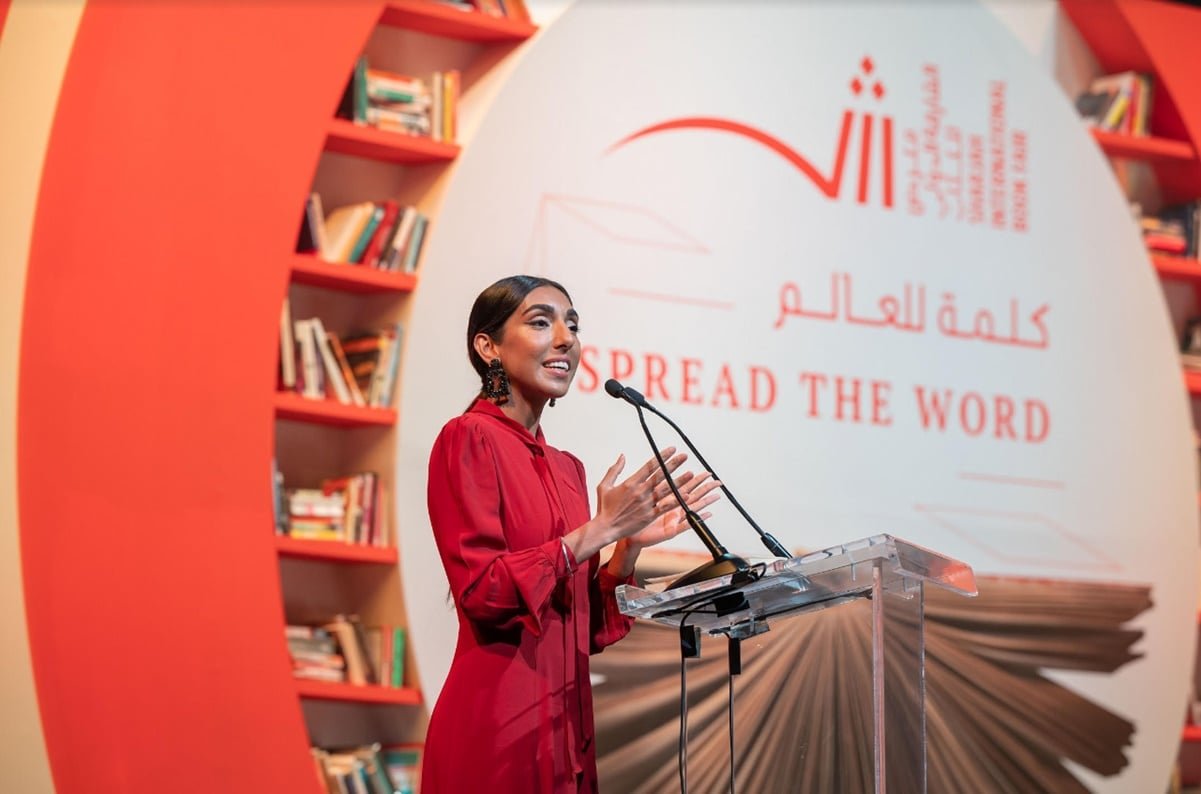At 30 years old, poet Rupi Kaur She has four published books, translated into more than 42 languages - three of which are bestsellers from The New York Times -, 4.5 million followers on Instagram, and an estimated fortune of more than one million dollars.
How did she do it? Kaur isn't a writer who has followed the conventional path and has found the secret to success in difference.
Kaur is originally from Punjab, India. At the age of four, she moved with her family to Canada, arriving unable to speak English, so her drawings helped her communicate. After gradually learning the language, Rupi's voice rose to prominence on social media with her poems, which address topics troubling millennials and Generation Z: anxiety, depression, uncertainty about the future, but also migration and feminism. Her poems are characterized by illustrations, an element that made her writing Instagrammable and viral.
Read also: Maya Ruiz-Picasso, one of Picasso's daughters, dies at 87.
Realizing the success of her poems and noticing that there wasn't a market for poetry written by brown-skinned women, Rupi forged her own path and self-published her first poetry collection, Milk and Honey, in 2014. The rest is history: Kaur has amassed a large following and has also evolved as an entrepreneur, now touring to recite her spoken word poetry and selling merchandise, from sweatshirts to stationery, with her name on it. 
Photo: Sharjah International Book Fair
Kaur will kick off 2023 in Mexico City, the next stop on her tour. Regarding her visit, EL UNIVERSAL had the opportunity to speak with the writer during the Sharjah International Book Fair 2022, where she reflects on making money from poetry and how the publishing industry has underestimated young minority writers.
A post shared by Rupi Kaur (@rupikaur_)
What impact do you think social media has on literature today?
I think social media has the power to democratize literature, and we've seen it. Before, it was a business open to certain perspectives, to certain people of a certain age, especially in the West. Just 20 years ago, a young woman like me would have been marginalized. It was very difficult for minorities to publish a book.
What social media has done is prove that there's interest in different types of literature, written by different people, which is why we're seeing more diversity in literature.
Would you say that social media, especially Instagram, has helped shape your style?
Many people don't know that I didn't actually start on Instagram, but rather posted my poems first on Tumblr. I continued posting on Instagram afterward, which is when everything really took off. If anything, Instagram helped me find my readers. I think doing it the traditional way (publishing a book) would have been more difficult.
What is your process for writing a poem?
Writing poems is like a meditation for me, a spiritual experience. When I write, I meditate and freewrite, because I don't choose the poems; the poems choose me. So what I do is sit at my desk and write freely, over and over again, to find out what's on my mind. Sometimes the 20-line poem comes very easily, but other times they come out horribly, and you spend months trying to fix them, and in the end, they end up being a very different piece than how you started.
You'll be performing in Mexico City in January. What are your expectations and what can your readers expect?
I'm so excited to go to Mexico. Many people have messaged me asking to visit, and I think what excites me most is the passion of my readers. I can't wait to meet them, hear their stories, and hear the issues that affect them.
How did the idea of doing poetry reciting tours, as if you were a pop singer, come about?
I've been reciting poems on stage for 13 years, and that's when I feel most powerful. Over the years, several readers have asked me why I don't go to their countries, and so this is my first world tour, spanning all continents.
As for how the idea came about, I don't know, it was the readers.
Read also: Dancer Raúl Tamez becomes the first Mexican to win a Bessie Award.
As you tour, what do you think about how readers around the world connect with your poetry?
I think one thing that's consistent, no matter the place or language, is that there's warmth and love between every person I meet. Many people relate to the poems I write, and I think the connection comes from sharing such personal things in them. I don't really know what happens when people read my poems, but I hope it persists over time.
A post shared by Rupi Kaur (@rupikaur_)
Do you think your way of working presents a new way of doing business through poetry?
I think at least in the West, there's still this idea that a true poet shouldn't make money from their work, and I think that's a very archaic idea. Why not? We all have to eat. Artists exhibit and sell their work, musicians give concerts, singers tour, and what I do is no different from what other artists do. I think it's frowned upon because we're not used to a poet going on tour to recite his work.
As a young writer who had to self-publish her books, what's your view of the publishing industry? Do you think the publishing world still underestimates young talent today?
I think so. There's been a significant shift. I've been in the industry for seven or eight years, and I've seen changes, not because the industry has decided so, but because we writers have pushed to open the doors.
Rupi Kaur will perform on January 25 at the Lunario, National Auditorium.
melc
Copyright © All rights reserved | EL UNIVERSAL, National Newspaper Company. Without prior authorization, publication, retransmission, editing and any other use of the contents is expressly prohibited.







